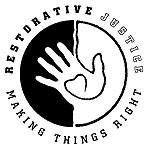
Iredell County Teen Court

The purpose and intent of the program is to involve young people in taking responsibility for their actions, and to give the community an active role in dealing with juvenile offenders in the hopes of reducing recidivism rates of youth in the county.
Restoring Youth: Creative Courts & Caring Communities
Teen Court is an alternative system of Restorative Justice. It is a court where youth who are responsible for an action are tried for (mostly) misdemeanor offenses and where they admit responsibility for their actions. Student volunteers take the roles of Clerk of Court, Bailiff, Defense and Prosecuting Attorneys, and Jurors. Local Attorneys and other community leaders volunteer and serve as Teen Court Judges. Teen Court empowers youth to work on ways to reduce crime and violence in their schools and communities.
WHAT'S THE PURPOSE OF TEEN COURT?
The program is based on the philosophy that a youthful law violator is less likely to continue to repeat the harms done, when a jury of their peers decides the appropriate punishment. It is anticipated that Teen Court will interrupt developing patterns of anti-social behavior by promoting feelings of self-esteem, motivation for self-improvement and a healthy attitude toward authority. Teen Court challenges those responsible, as well as the volunteer teens to perform at their highest level.
WHERE IS TEEN COURT HELD?
Cases are heard at the Iredell County Courthouse Annex on Water St. in downtown Statesville and at the Courthouse at 610 E. Center Ave. in Mooresville. Youth responsible for the harm done and their attorneys will meet at 5:00, along with all volunteers reporting to the Teen Court Coordinator. Court begins at 5:30 p.m.
WHO CAN VOLUNTEER?
Teen Court volunteers must meet the following criteria:
- Be a 7th – 12th grade student in satisfactory academic standing, and not currently under the jurisdiction of the Department of Juvenile Justice.
- Abide by the rules of the program
- Sign and respect the “Oath of Confidentiality”.
- Demonstrate maturity and sensitivity.
Adult volunteers are always needed and welcome.
To become a Teen Court volunteer, contact Jessica at 704-873-7624 or e-mail her at mediationwithjessica@gmail.com
HOW DOES IT WORK?
Adult referrals are received by the Teen Court coordinator. If the case is appropriate for Teen Court, the coordinator will contact the responsible youth and their family. The youth, along with a parent or guardian, will be interviewed by the coordinator. If the youth is willing to admit responsibility for the harm done, then he/she may be selected to participate.
Participating in the Teen Court program as a defendant is a privilege. Upon successful completion of ordered sanctions, the responsible youth will have no juvenile or adult criminal record of the offense. With this said, it is very important that youth understand the seriousness of the proceedings and agree to take responsibility for their actions.
Teen Court does not determine guilt or innocence; admission of guilt is a requirement for being offered this voluntary diversion from criminal charges. The youth will then be assigned a date to appear in Teen Court to take responsibility for his/her actions before an adult judge and a trained jury of his peers.
In court, the youth is asked questions by both the prosecuting and defense attorney and closing statements are made. The youth is allowed to tell his or her account of what happened. The jury will then deliberate an appropriate sentence, which may include community service, a restorative justice process, teen court jury duty, letters of apology, drug assessments, life-skills classes, etc. All requirements, as monitored by the Teen Court coordinator, must be completed no later than 90 days. Successful completion results in NO CRIMINAL RECORD.
Once the hearing is complete the Teen Court staff immediately meets with the youth and their family to explain the jury's requirements and answer any questions they may have. Once the requirements are met the case is closed. If the youth does not successfully complete the program, a detailed letter is sent to the referral source where other ways to address the harms done may be put in place.
HOW DOES TEEN COURT DIFFER FROM DISTRICT COURT?
Teen Court differs from a normal court process in two distinct ways.
- All Teen Court youth admit their guilt prior to their hearing. This removes the responsibility of determining guilt from the jury and allows them to critically think about what sanctions would be appropriate for the offense committed.
- In Teen Court all the roles of the court are filled by teens except for the judge who is a community leader. The lawyers, bailiff, clerk and jury members are all youth volunteers who volunteer their time to learning about the judiciary system and serving their community.
The Responsible Youth Benefit by:
- Keeping a clean record.
- Getting a second chance.
- Learning important lessons.
- Taking personal responsibility.
- Developing respect for authority.
- Positive appreciation of others.
- Positive motivation toward self-improvement.
Student Volunteers Benefit by:
- Direct experience with our legal system.
- Learning to work together.
- Future legal career possibilities.
- Developing basic leadership qualities.
- Developing self- worth.
- Being around positive role models.
- Strengthening personal bonds.
Community Benefits by:
- Empowering young people to change.
- Reducing recurrence of criminal behavior.
- Reaching young offenders at the most crucial time.
- Promoting positive attitudes.
- Rehabilitating young offenders.
- Improving school and community environments.
- Educating young people about their legal rights.
- Allowing the court system to focus on more serious offenses.
- Building leadership qualities and community awareness.

